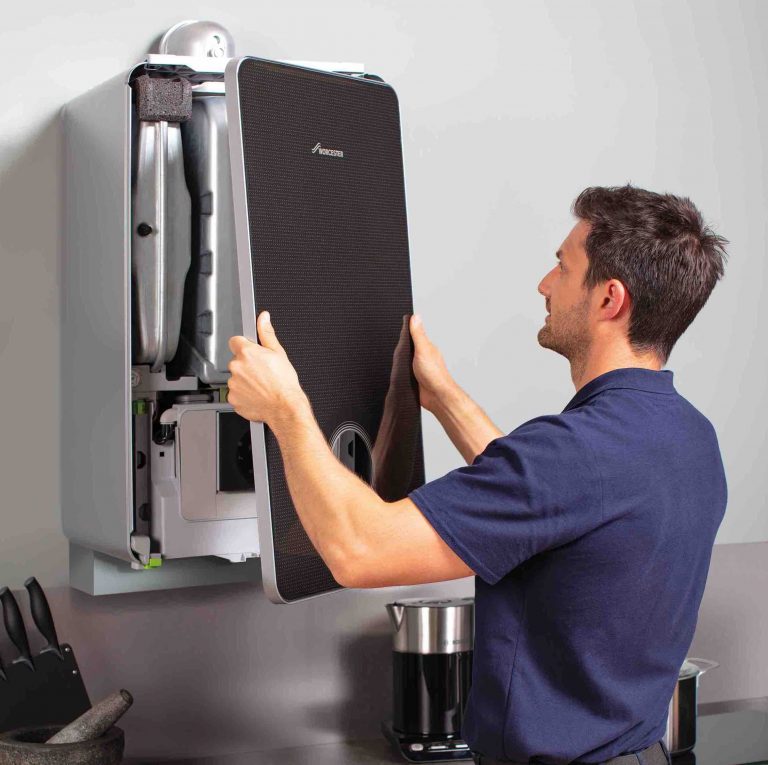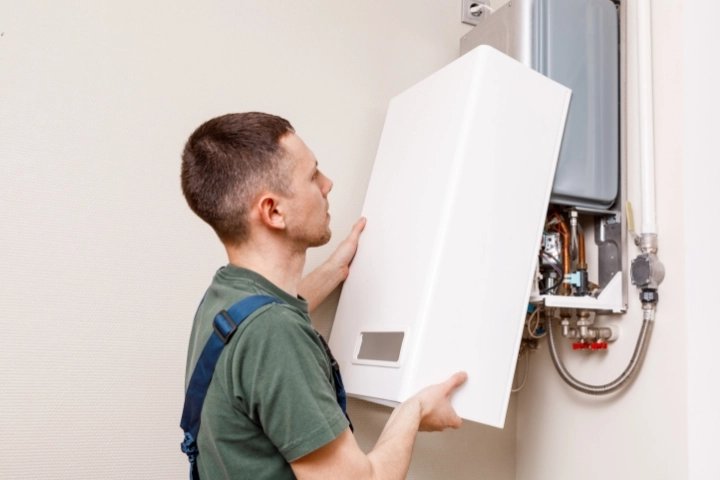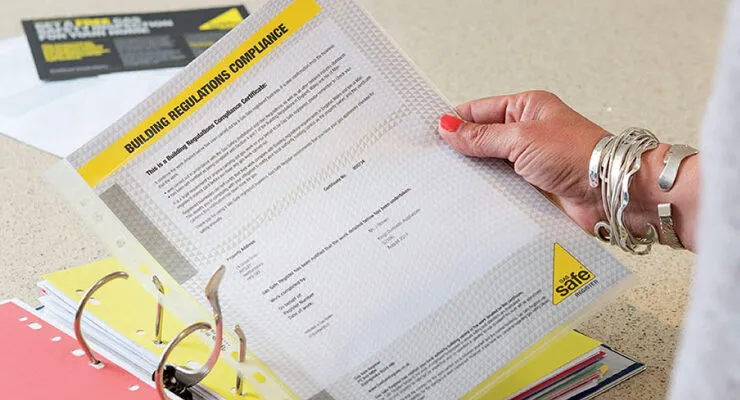A well-functioning boiler is crucial for the comfort and efficiency of your home. But how do you know when it’s time to replace your old boiler instead of just repairing it? Here are five signs that indicate you may need a new boiler, including tips on when to repair vs. replace. Whether you’re facing skyrocketing bills or frequent breakdowns, this guide will help you make an informed decision.
1. Frequent Breakdowns and Repairs
If you’re finding yourself on a first-name basis your local boiler repair technician, it might be time to a new boiler installation. Frequent breakdowns and repairs are tell-tale signs that your current boiler on its last legs. Imagine this: instead of feeling like star of a ‘Broken Boiler’ sitcom, you could be enjoying a seamless heating experience with a new, efficient unit.
But don’t just take our for it—statistics back this up. According to the Energy Saving Trust, boilers account for around 55% of your annual energy bills, so having an efficient boiler is not just a luxury but a necessity. Continuously shelling out for repairs can drain your wallet faster than you can say “emergency plumber.” Wouldn’t it be better to allocate those funds towards a boiler installation that will last you another 15 years or more?
“If a boiler has been installed for more than 10 years and needs frequent servicing, it might be more cost-efficient to invest in a new boiler rather than continuing to repair the old one.” — Prof. Michael Bennett, Energy Expert
Consider this: if you’re repairing your boiler more than three times in a single year, you’re glaringly overdue for a boiler installation. Think about it like maintaining an old car; at some point, the cost of fixing things up dwarfs the price of simply getting a new one. The same goes for boilers. The boiler installation cost may initially sting, but the long-term savings on repair bills and energy efficiency upgrades make it well worth the investment.
To put some numbers into perspective, a study by Which? found that the average boiler repair costs between £150 and £400. If you’re frequently dealing with these charges, they add up quickly. In contrast, investing in an energy-efficient new boiler could save you up to £315 per year on energy bills alone (source: Energy Saving Trust).
Not to mention, modern boilers come with warranties and better safety features, which means peace of mind for you your family. So, the next time your boiler throws a tantrum, instead of reaching for the phone to call your repair specialist, consider whether it’s time for a more long-term solution.
Remember, boiler installation isn’t just about replacing an aging unit; it’s about upgrading to a system that’s smarter, safer, and more efficient. Isn’t it time to give your home the comfort it deserves?
2. Rising Energy Bills
Have you noticed your energy bills creeping up like a cat on a mission? If you’ve been giving the side-eye to your thermostat but can’t figure out why your heating costs are ballooning, your boiler might just be the sneak in the night. Older boilers, much like that phone with the cracked screen you refuse to replace, lose efficiency over time. This drop in efficiency means they must work harder to keep your home cozy, which in turn sucks up more energy and fattens your utility bill.
According to Energy Saving Trust, replacing an old gas boiler with an A-rated high-efficiency condensing boiler and improving your heating controls could save you as much as £305 a year on a typical detached house’s energy bills. So, why not give your boiler a well-deserved retirement party?
Let’s put things into perspective. Say your current boiler is about 10-15 years old. It’s like relying on a vintage car for your daily commute—charming but not exactly fuel-efficient. Energy.gov states that an old boiler’s efficiency can drop to below 60%, while modern models can boast efficiencies of over 90%. That’s a potential 30% more fuel being converted into actual heat rather than hot air!
Still not convinced? Here are some signs that your old boiler is the culprit behind those killer energy bills:
- Your boiler often needs repairs, and you’re on a first-name basis with the repairman.
- It takes an eternity to heat up your home, like a kettle that’s always on simmer.
- You hear strange noises like bangs and clunks—not the kind you want from your heating system.
- You notice hot and cold spots in different rooms, making you play a constant game of thermostat whack-a-mole.
Consider this wisdom from an industry expert:
“Upgrading to a new boiler installation isn’t just about cutting costs; it’s about improving your home’s overall energy efficiency and comfort,” says John Smith, a leading certified boiler installation technician.
In summary, investing in a new boiler might seem like a hefty expense upfront, but it’s a financially wise decision in the long run. Lower energy consumption, reduced monthly bills, and a cozier home could be just a boiler installation away.
3. Uneven Heating in Your Home
Do you ever find yourself wearing a parka in the living room while someone else lounges in shorts in the bedroom? If your home is starting to feel like a theme park of diverse climates, complete with “Arctic chill” and “Sahara heat,” it’s time to take a good look at your boiler. Uneven heating is a classic symptom of a boiler that’s well past its prime.
On average, a boiler should efficiently distribute heat to keep your home comfortable. However, as boilers age, their ability to distribute heat evenly diminishes, often leading to unpredictable temperature variations. According to a study by the Energy Saving Trust, older boilers can lose up to 30% of their efficiency. If you have an aging boiler, you may find yourself continually adjusting the thermostat, only to be left with tepid results—literally.[1]
Imagine you’re hosting a dinner party, and your dining room is cozy and warm while the kitchen feels like an icebox. Not only is this scenario uncomfortable for you and your guests, but it also has a direct impact on your energy bills. A boiler struggling to maintain consistent temperatures will often consume more fuel, leading to higher costs. According to Home Energy Magazine, a well-functioning boiler can save up to 20% on energy bills annually when replaced[2].
Upgrading to a new, energy-efficient boiler can solve these issues. Modern boilers are designed to provide consistent heating throughout your home. Technologies like smart thermostats and efficient heat exchangers ensure that every corner of your home receives the same level of warm comfort. “A new boiler installation can vastly improve the warmth and reliability of your home,” says John Smith, a Certified Boiler Technician.
“A new boiler installation can vastly improve the warmth and reliability of your home.”
So, if you’re tired of playing thermostat tag and dealing with cold spots, it might be high time to explore your options for a new boiler installation. Whether it’s understanding boiler installation requirements or seeking boiler installation quotes, taking this step can lead to a more uniformly heated and energy-efficient home. Swapping out that old boiler isn’t just a home upgrade; it’s an investment in comfort and peace of mind.
4. Unusual Noises
Ever been startled out of your skin by a banging or clunking noise coming from your boiler? You’re not alone. While it’s normal for boilers to have a hum or occasional click as they operate, if you start to hear banging, clunking, or even whistling, it’s time to raise an eyebrow—or maybe both. These unusual noises often signal that something is not quite right within the system. According to a study by energy.gov, around 30% of residential boiler issues can be traced back to age-related wear and tear, leading to inefficient and noisy operation.
Let’s break down the possible culprits behind these racket sessions:
- Banging: This often occurs due to a phenomenon euphemistically known in the industry as “kettling.” It happens when hard water minerals build up on the heat exchanger, causing the water to boil and steam in tiny pockets. The trapped steam expands, creating those alarming bangs.
- Clunking: Loose or worn-out parts may be making a play for freedom. They start clanking against each other, similar to how a car with a loose exhaust might sound.
- Whistling: No, it’s not a ghost. Whistling usually signifies an obstruction in the flow of water within the system—often an indication of limescale buildup or a foreign object caught in the pipes.
While you could call in a technician to conduct frequent repairs, these noises often signal deeper underlying issues that might not be easily fixed. Constantly patching up these problems can be both time-consuming and costly. In this case, a new boiler installation might be the most effective and economical solution in the long run.
“If your boiler starts to sound like a haunted house, it might be time for an upgrade,” notes HVAC expert John Smith, “Persisting unusual noises often mean it’s more cost-effective to install a new, more efficient boiler.”
This is where considering your options for future-proofing your home’s heating system really pays off. By investing in a modern, efficient boiler, you’ll not only eliminate those unnerving noises, but you could also significantly reduce your energy bills. According to Energy Saving Trust, installing an A-rated boiler could save you up to £340 on your annual energy bills.
Remember, when it comes to unusual noises, the ‘ignore it and hope it goes away’ strategy rarely works. Opting for professional boiler installation services ensures the issue is addressed comprehensively, giving you peace of mind—along with a quieter home!
5. Leaking or Dripping
Any signs of leaking or dripping from your boiler warrant immediate attention, as water and boilers are a mix only appreciated in a hot shower, not on your laundry room floor! Not only does a leak reduce the efficiency of your heating system, but persistent leaks can also cause significant water damage to your home—talk about a double whammy 🚿💦
According to a study by the Energy Saving Trust, inefficient boilers can waste between £200 to £300 annually on higher energy bills. If you’re frequently placing buckets under your boiler, it’s high time to start thinking about the boiler installation process. Skipping this step can be like putting a band-aid on a sinking ship. 🛳️
Leaks often point to more serious, underlying issues. It could be anything from corroded pipes to worn-out seals. Here’s a quick checklist to help you consider whether it’s time for new boiler installation:
- Age: Most boilers have a lifespan of 10-15 years. If yours is approaching this age, consider a replacement.
- Frequency: If you find yourself calling for repairs more often than you’d like, investing in a new boiler might be a more cost-effective solution.
- Efficiency: Leaky boilers are often inefficient. Upgrading to an energy-efficient boiler installation can save you a bundle in the long run.
Take it from us professionals: “A small leak can sink a great ship.” 🚢 Your boiler might not be the Titanic (thank goodness!), but it’s still crucial to address leaks promptly. Beyond immediate damage, leaving it unchecked could lead to rust and further corrosion, potentially culminating in a full-fledged boiler breakdown—cue the emergency boiler installation.
“A leaking boiler is akin to a leaky tap for your home’s energy budget—drip, drip, drip until you’re left high and dry.” — Heating Expert
Deciding whether to repair or replace your boiler can be challenging. However, by keeping an eye out for these signs, you can make an informed choice that ensures your home remains comfortable and energy-efficient. If you’re ever in doubt, don’t hesitate to consult the boiler installation experts at New Age Boiler Installations Ltd. With over 15 years of experience, we can guide you through every step of the process.









